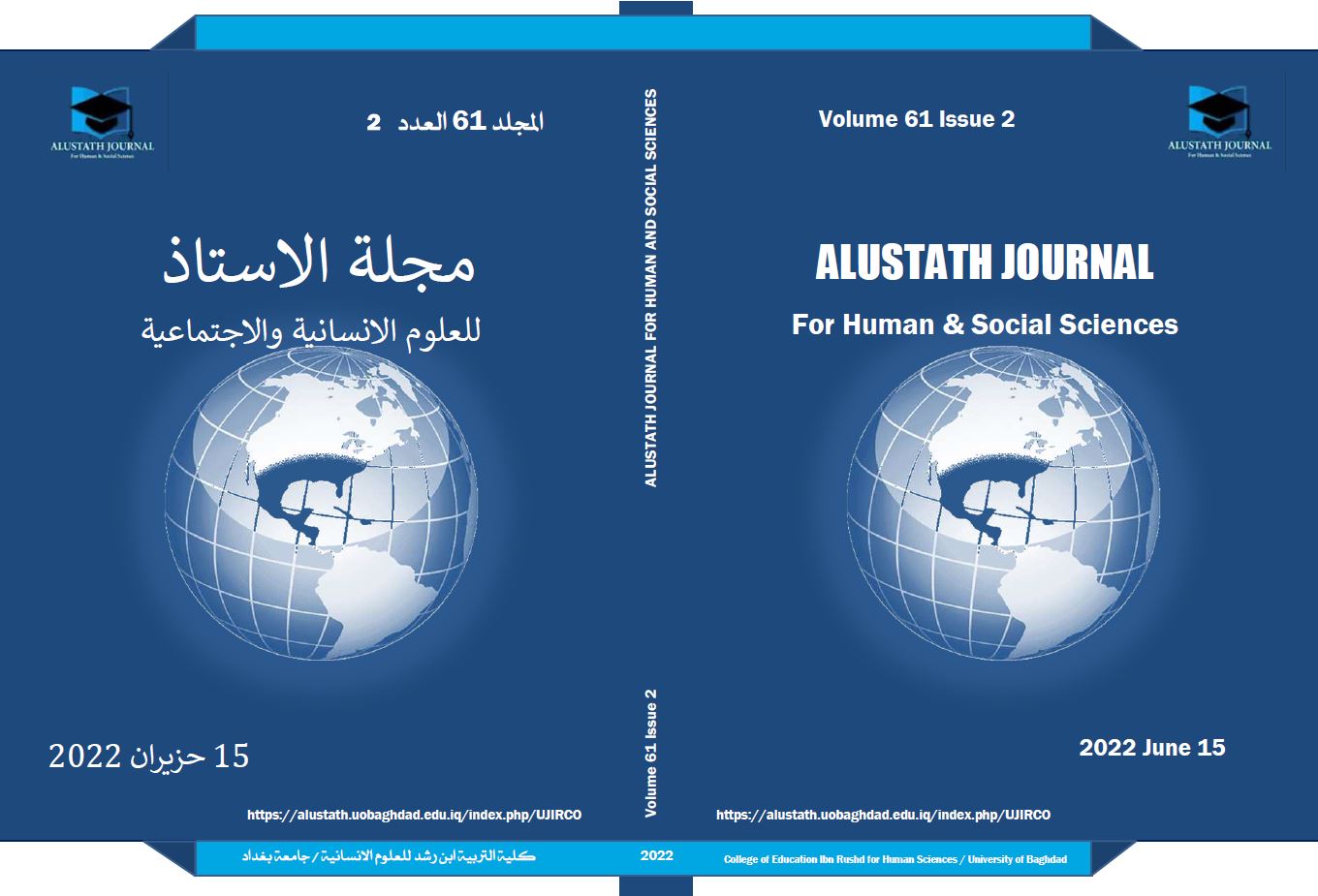Memory Beliefs and their Relationship to Academic Resilience for Students of the Faculty of Education for Human Sciences at the University of Mosul
DOI:
https://doi.org/10.36473/ujhss.v61i2.1609Keywords:
Memory Believes_ Academic ResilienceAbstract
Abstract
The current research aims to identify the memory beliefs and the statistically significant difference in memory beliefs and academic resilience according to the gender and grade variables and the relationship between memory beliefs and academic resilience among students of the College of Education for Human Sciences at the University of Mosul, The research sample consisted of (683) male and female students and the two tools used in the research were: a belief scale which was prepared by the researcher and the Academic Resilience Scale (Cassidy, 2016). And those students have academic resilience, and that the statistically significant differences were significant depending on the gender variable and in favor of females and were not significant according to the class variable in academic resilience, and there is a positive correlation between memory beliefs and academic resilience.
Downloads
References
• Bandura, A. (1982): Self – efficacy mechanism in human agency, American Psychologist, Vol . 37, No. 2, pp 122-147 .
• Bandura, A. (1977): Self-efficacy: Toward a unifying theory of behavioral change. Psychological Review, 84(2), 191-215.
• Carretti, B, et al.(2011). Impact of metacognition and motivation on the efficacy of strategic memory training in older adults : Analysis of specific , Transfer and maintenance effects . archives of geriatrics , 52, 192 – 197.
• Cassidy, Simon, (2016), The Academic Resilience Scale (ARS-30): A New Multidimensional Construct Measure, Front. Psychol., 18 November,7.1-11.
• Dickinson, Mary J & Dickinson, David A.G, (2014), Practically perfect in every way: can reframing perfectionism for high-achieving undergraduates impact academic resilience?, Published online: 07 May 2014, Pages 1889-1903.
• Dictionary, M.W.C,(2002):Springfield, MA; Merrism Webster.
• Dweck, C. & Legget, E. (1988). A social cognitive approach to motivation and personality. Psychological Review, Vol.95, (pp. 256-273.(
• Dweck, C. S. (2006). Mindset : The New Psychology of Success . New York : Random House.
• Dweck, C.S, (2000):Self - Theories : Their Role In Motivation, Personality And Development, Essayes In Social Psycho, New York.
• Fastame., Maria Chiara,(2013), Exploring the effect of depressive symptoms and ageing on metamemory in an Italian adult sample, Psychology Health and Medicine 19(2).127-135.
• Hertzog, C. Hultsch, D. & Dixon, R. A., (1989), Evidence for The Convergent Validity of Two Self- Report Mea Memory Questionnaires, Developmental psychology: 142.
• Hoge, E.A, et al, (2007), Resilience: research evidence and conceptual considerations for posttraumatic stress disorder, January 2007Depression and Anxiety 24(2):139-152.
• Kalaf, M, (2014),Validity and Reliability of the academic Resilience Scale in Egyptian context, US-CHIN Education Review, 4(3) 202- 210.
• Lineweaver, Berger., T. et al, (2009) Expectations About Memory Change Across the Life Span Are Impacted by Aging Stereotypes, Psychology and Aging 24(1):169-176
• Lockl,K &Schnei,W(2008). Precursors of metamemory in young children the role of theory of mind and metacognitive vocabulary: metacognition and learning, Vol.1, pp.15-31.
• Martin, Andrew & Marsh, Herbert. (2006), Academic resilience and its psychological and educational correlates: A construct validity approach, Psychology in the Schools 43(3):267 - 281.
• Martin, Andrew & Marsh, Herbert.(2009), Academic resilience and academic buoyancy: multidimensional and hierarchica conceptual framing of causes, correlates and cognate constructs, Oxford Review of Education, Volume 35, p.p 353-370.
• Martin, Andrew J,(2013), Academic buoyancy and academic resilience: Exploring ‘everyday’ and ‘classic’ resilience in the face of academic adversity October 2013School Psychology International 34(5):488-500.
• Martin, Andrew. (2002), Motivation and Academic Resilience: Developing a Model for Student Enhancement, Australian Journal of Education 46(1):34-49.
• Martin, Andrew2013), Academic buoyancy and academic resilience: Exploring ‘everyday’ and ‘classic’ resilience in the face of academic adversity, School Psychology International 34(5):488-500.
• McCombs,B. L.(2001): Self-regulated learning and academic achievement, A phenomenological view. In B. J. Zimmerman & D. H.
• Oyoo, S & Mwaura, T.(2018) Predictor a as Resilience of Academic Burnout among Form Four Students in Homa-Bay county, Kenya, International. , Journal of Education and Research,6(3), 187-200.
• Peng Li, , et al .2017 Resilience and Cognitive Bias in Chinese Male Medical Freshmen, Front. Psychiatry, 30 Augus.640- 660.
• Schommer, M. (1998). The Influence Of Age And Education On Epistemological Beliefs. British Journal Of Educational Psychology, Vol.68, (pp. 551-562).
• Von Eye, A, S, (2000), the odds of resilience, Child development, 77,(3),563 -566.












